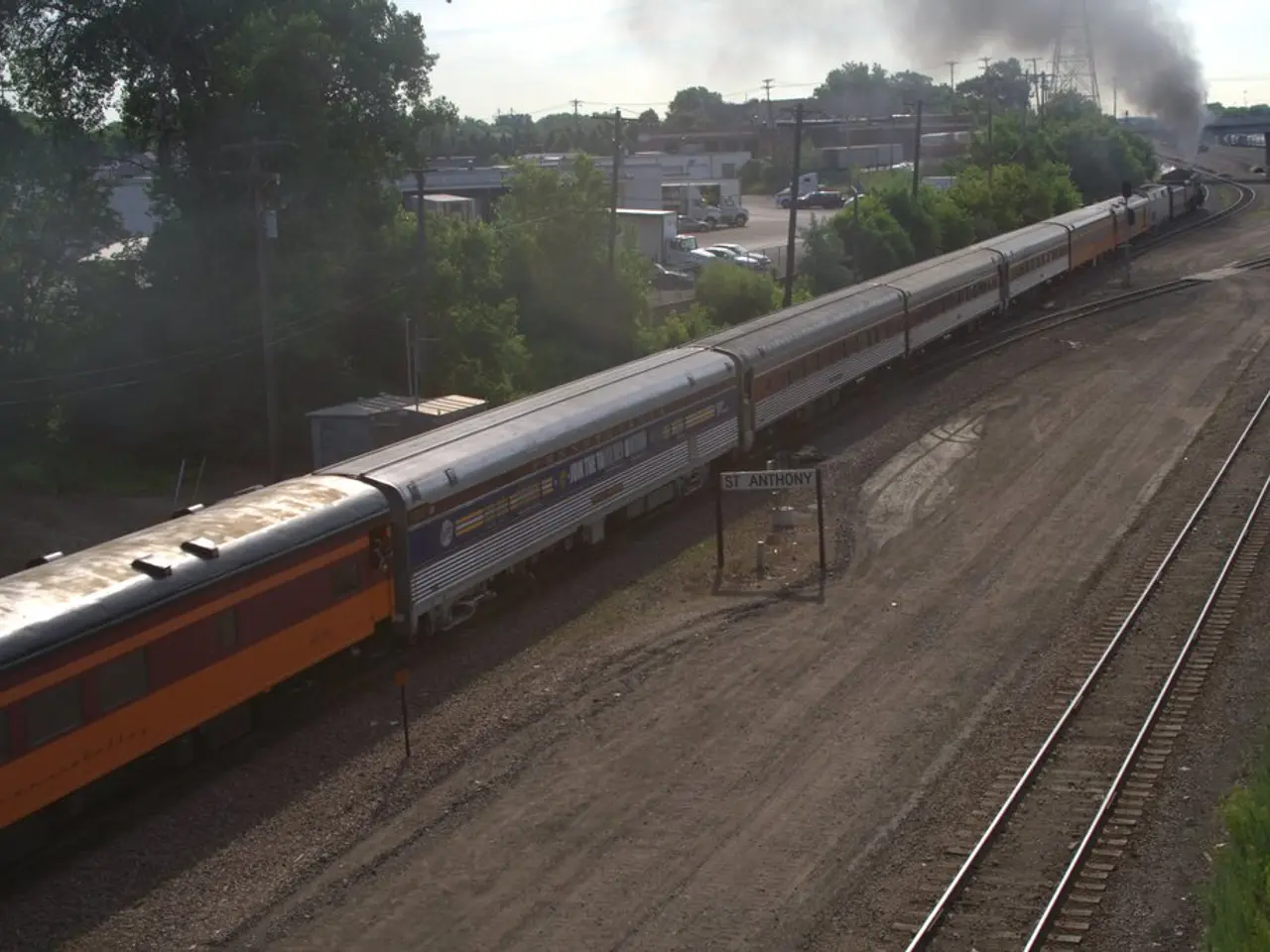Extreme Temperatures: Monitoring Train Lines as France Experiences 50°C Tracks, According to SNCF
In the midst of a scorching heatwave, passengers traveling by rail in France are bracing for potential delays or service disruptions. To ensure the safety of its passengers and maintain operational efficiency, SNCF, the French national railway company, has implemented a series of measures to combat the effects of extreme temperatures on its railway networks.
One of the primary precautions SNCF takes during heatwaves is to reduce train speeds on tracks that are particularly vulnerable to warping. The intense heat can cause the rails to expand beyond their tolerance limits, a condition known as rail warping. This poses a significant safety risk and can lead to service disruptions. By slowing down trains, SNCF is able to reduce stress on the tracks and help maintain operational safety. Key routes such as Paris to Avignon and Lyon to Marseille, popular high-speed corridors, have already seen delays due to these heat-related restrictions.
In the event of severe weather conditions combining heat and thunderstorms, SNCF may even plan complete traffic interruptions on certain lines to ensure the safety of passengers and staff. This was evident in the recent interruptions on Transilien lines L and J in the Paris region. In these cases, no substitute transportation is provided, and users are advised to postpone journeys as much as possible.
SNCF is also focusing on the resilience of its infrastructure to extreme heat. For example, critical rail equipment may be housed in temperature-controlled environments, and ventilation systems enhanced to maintain comfort and safety during heatwaves. While specific SNCF implementations were not detailed, these measures are part of a broader trend in the industry to design and upgrade rail infrastructure to withstand such events.
Ranja Rarivoseheno, a maintenance agent at SNCF Réseau Mantes, is one of the many agents closely monitoring the rails to prevent any warping, which would result in a service halt. In Nouvelle-Aquitaine, 70 agents have been deployed to monitor the rails, but no rail warping has been reported in recent days.
As the upcoming holiday weekend approaches, SNCF is increasing inspections to ensure the safety of its railway networks. Catenary wires, which can expand when the temperature is too high, pose a risk to the network. By staying vigilant and proactive, SNCF aims to minimize service disruptions and maintain safety despite the challenges posed by rising temperatures and extreme weather events.
For the latest updates and a full report on SNCF's heatwave preparations, please see the video above. SNCF Réseau Mantes, based in France, is at the forefront of these efforts, working tirelessly to ensure a smooth and safe journey for its passengers.
- SNCF Réseau Mantes, based in France, is also focusing on the resilience of its infrastructure to extreme heat, implementing measures such as housing critical rail equipment in temperature-controlled environments and enhancing ventilation systems to ensure comfort and safety during heatwaves, as part of a broader trend in the French industry to design rail infrastructure that can withstand such events.
- The French finance sector, recognizing the crucial role of transportation in the economy, has been providing substantial funding for SNCF's heatwave preparations to ensure smooth railway service, which in turn supports industries such as tourism and commerce, contributing to the overall financial stability of the nation.




